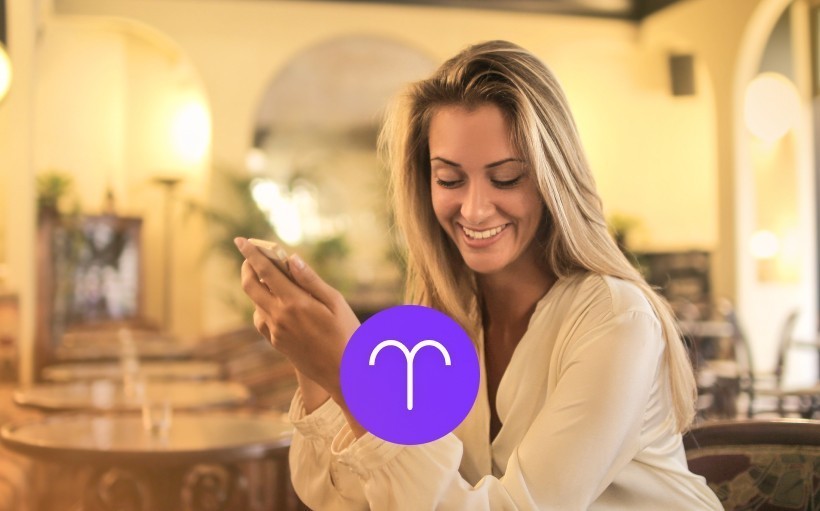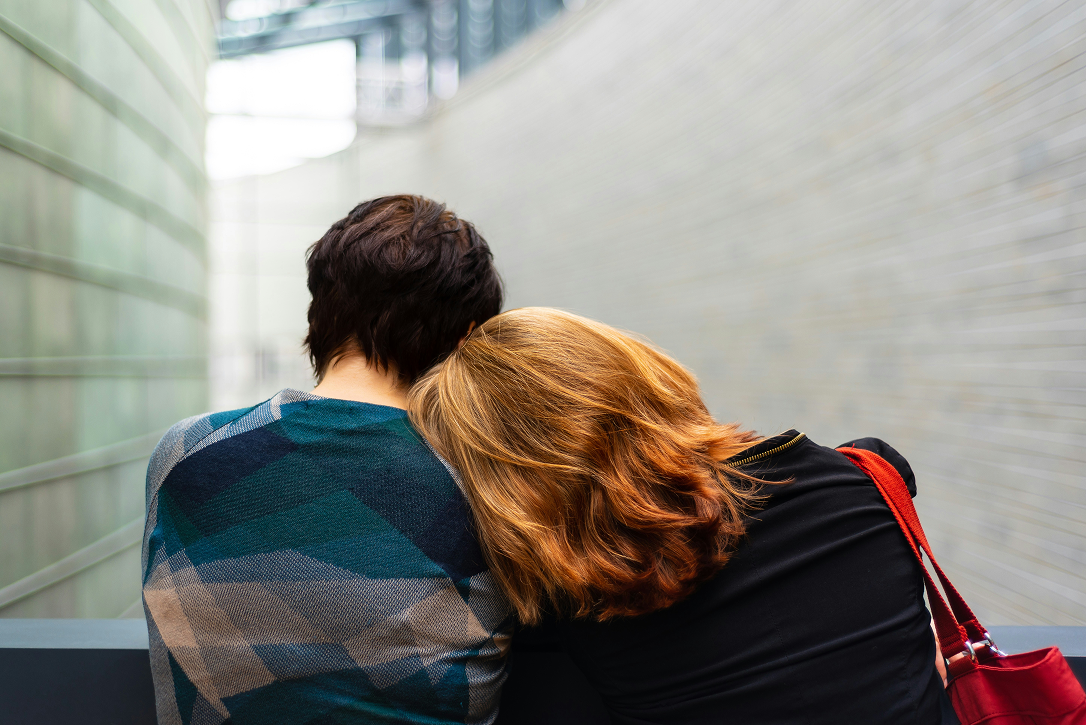Love vs In Love: Understanding the Distinct Feelings and Their Impact
Ever wondered if the feelings you’re experiencing are true love or just being in love? It’s a question that many people ask as they navigate romantic relationships. While these two emotions might seem similar, they’re actually quite different — and recognizing the distinction between love vs in love can be a game-changer for your happiness and long-term success in relationships.
Love and being in love often get tangled, but understanding what each really means can help you put your relationship into a better perspective. Whether you’re spending time with a romantic partner or just trying to figure out what you want, knowing the difference can shape your relationship in powerful ways.
What Does It Mean to Feel Love?
“Being in love is that feeling that grips you for the moment and sweeps you off your feet without a second thought, while love is a willingness to stand by each other, even through difficult times.”
Being in love is often associated with that euphoric feeling, the rush of longing and thrill that sweeps you off your feet in the early stages of a relationship. It’s intense, energetic and full of highs. Think of it like the honeymoon stage, where everything feels new, amazing and full of joy.
During this relationship phase, you might fall fast, overwhelmed by desire and crush-like admiration. Your heart races when you think about your partner; even small gestures like a smile or a text message can make you euphoric. This kind of passionate love is all about the thrill of falling and the joy of discovering someone new.
But it’s also important to know that this feeling can be short-lived. Many experts compare feeling in love to an addiction — the brain’s reward system is in overdrive, flooding you with dopamine and oxytocin, which make you feel alive and happy. However, this phase often dwindles, leaving the real test: can this passion deepen?
“The initial phase of falling in love with a person is a unique blend of thrill, emotional attachment and vulnerability. During this time, emotions often overpower logic and your focus narrows entirely on the object of your affection. This phase is marked by heightened euphoria, frequent thoughts of the person and a deep willing to know and be known by them. However, it is also a fragile stage, as adoration may fade, leaving the relationship to flourish or falter. The beginning stages of love often form the foundation for a more enduring future bond.”
Related reading: Test Your Love: Are You and Your Partner Compatible?
What Is Love — The Deep, Enduring Connection?
“Loving a person requires you to see your partner wholly and accept all their parts, just as they see and accept all of you. Minor flaws often don’t really matter over the long term. But when something does bother you, you’ll probably feel comfortable enough to speak up about it and work to encourage and support each other through personal growth.”
Romantic love is a more stable and profound feeling than being in love. It’s not just about initial passion but about mutual respect, understanding and commitment. Love means accepting your partner for who they are — flaws, quirks, etc. It’s about a strong sense of attachment that grows over time and becomes a foundation for long-lasting happiness.
Related reading: The Best Ways to Sustain Passionate Love in Long-Term Relationships
Relationships built on genuine love are characterized by emotional support, shared values and commitment that can weather storms. Love means being there through the good and evil and feeling a deep affection that is not fleeting but steadfast. A genuine connection with your partner creates a sense of security, trust and happiness of loving someone.
Research shows that long-term relationships based on love are more likely to be resilient and fulfilling. Unlike the rush of being in love, love is about building a life together — a relationship that thrives beyond initial feelings and into true partnership for life.
The Key Differences Between Love and Being in Love
While love and being in love sit on the same spectrum of romantic relationship feelings, they serve different purposes and impact your well-being in unique ways.
When you’re in love, it’s all about intense passion, desire and adventure. These feelings are energizing, joyful and often full of the thrill of the new. It’s like falling into a cloud of euphoria — an emotional rollercoaster that makes every moment feel electric.
Meghan Watson, M.A., a registered psychotherapist and the founder of Bloom Psychology & Wellness notes that the difference between being in love and loving someone often comes down to perspective.
“Generally speaking, loving someone versus being in love with them refers to how active and intense that love is experienced or perceived. For many partners, being in love is intentional, active and intense. This experience is more romantically coded, as opposed to loving someone or having a sense love for them, which is sometimes seen as more familial, casual or platonic. Ultimately, being in love and loving someone depends on your perspective and the context.”
Meghan Watson, M.A., Bloom Psychology & Wellness
The thrill of being in love is linked to a flood of dopamine and adrenaline in the brain. That’s what makes your heart race, your hands shake and your mind constantly focused on that one person. During this initial stage, it can feel like nothing else matters. You’re more likely to ignore red flags and see your partner through rose-colored glasses, focusing only on their good qualities.
But here’s the thing — that euphoria tends to fade over time. As it does, your relationship transitions from the passionate in-love phase to a more stable love based on mutual admiration and deep affection. This transition can be challenging, but it is necessary for long-lasting love in your relationship.
Authentic love isn’t just about fireworks; it’s about sharing a life with someone who takes your boundaries into account, supports your growth and makes you feel safe even during the quiet, ordinary moments. It thrives on trust, unconditional love and a strong sense of connection that endures the test of time.
“Growing to love the real person and accepting who they are, with both strengths and weaknesses, can make a wonderful difference in your relationship. [It helps] it to become a lasting source of comfort, emotional safety and a wonderfully sustainable joy. When you see each other realistically and come to know each other well, you’re less likely to disappoint each other.”
Why Understanding the Difference of Love VS In Love Matters
Knowing whether you’re just in love or genuinely loving someone can make a big difference in navigating your long-term relationship. Falling deeply in love can be exhilarating, but it can also, in the same way, lead to confusion. Sometimes, people stay in toxic patterns, mistaking the intense excitement for genuine love.
Research from relationship experts suggests that long-term, thriving relationships are built on more than just thrill — they are based on admiration, shared goals and mutual support. When you know what kind of emotion you’re experiencing, you can decide what to prioritize — whether to nurture the passion or invest in building a more secure bond.
In the end, true love balances longing with deep connection, adventure with stability. It’s the kind of love that can last a lifetime — powerful, fulfilling and resilient against life’s inevitable changes.
Is One Better Than the Other?
You might wonder: Is it better to be in love or to love? The truth is, both have their place. Being in love can feel like flying — but it’s not meant to be the whole life story.
Feeling love, in its purest form, is about commitment, appreciation and sincere devotion that stands the test of time. It comes with the comfort of knowing your partner, which makes you feel safe and valued. While the thrill of in-love feelings upholds the spark, real love grows deeper and stronger with time.
Relationship experts agree: falling in love is easy; staying in love requires effort. Understanding the difference helps set realistic expectations about what love should be in your life and future.
Related reading: Fascinating Facts About Love That Will Change Your Perspective
How To Cultivate a Clear Understanding in Your Relationship
To truly distinguish between being in love and loving someone, it’s helpful to observe your feelings and emotions over a period of time, not just during the initial rush. Ask yourself:
- Do I love this person even during the quiet, ordinary moments, when the passion fades?
- Am I respectful and trust them in moments when the spark fades?
- Do I feel secure in our connection or am I driven solely by longing?
- Is my desire focused on building a future together or is it just the moment’s thrill?
Healthy romantic relationships balance thrill with commitment and appreciation. They allow you to feel a safe space, joy and security, fostering a stronger bond over time through trust, understanding and mutual care.
Related reading: Relationship Values to Share
Relationship experts emphasize that long-lasting love is built on more than just the adrenaline rush; it involves respect that goes both ways, deep understanding and commitment. Falling in love can rarely be sustainable if it’s purely about euphoria. However, love, especially the kind that forms a lasting bond, keeping the romance, grows when both partners focus on understanding each other’s emotional needs.
You might want to take time to reflect:
- Does this relationship bring joy and a sense of security?
- Are we working together on the conflicts resolution?
- Do we spend time together that’s meaningful beyond the butterflies?
Related reading: How Well Do You Know Your Partner? Take This Fun Quiz to Find Out!
Understanding these distinctions helps set realistic expectations and build an exciting and grounded relationship. Exercise patience and self-awareness — these are the keys to nurturing both passion and deeper love.
FAQ: Love vs In Love — Your Questions Answered
Q: What’s the main difference between romantic love and being in love?
Being in love is often about intense desire and a rush of feelings, especially in the early stages. Love, however, is a deeper, more stable connection based on mutual respect, trust and commitment that grows over time.
Q: Can you be “in love” forever?
The intense feelings that characterize being in love tend to fade, but that doesn’t mean the love itself can’t last. Authentic love builds around trust, caring and shared values, which can grow deeper and more resilient over time.
Q: Which one is better — being in love or simply loving someone?
Neither is inherently better. Being in love is wonderful for excitement and longing, but lasting love — the real connection — is more about mutual respect, understanding and commitment. Ideally, a healthy relationship combines both.
Q: How do I know if I’m just in love or actually love someone?
Pay attention to how you feel during quiet moments and in times of conflict or routine. If you still appreciate, trust and care for your partner beyond the initial euphoria, it’s likely love. You’re probably in love if your feelings are mostly about high energy and craving.
Q: Can you fall out of love?
Yes, especially if the feelings of passion fade or the relationship lacks emotional depth, appreciation or shared values. However, with effort and mutual admiration, love can often be rekindled or transformed into a stronger, deeper connection.
Q: Is it possible to feel both in love and love simultaneously?
Absolutely. Many people experience the thrill of being in love alongside the calmness and security of genuine love. Healthy relationships often contain a mix of excitement and stability.
Q: How can I nurture genuine love in my current relationship?
Focus on honest communication, mutual respect, spending quality time, supporting each other’s growth and caring for one another during both joyful and challenging times.
Q: Can you be in love with more than one person at the same time?
While it’s possible to have strong feelings for multiple people, real love typically involves a deep, committed connection with one partner. Feeling in love might happen more easily, but genuine long-term love usually requires focus and emotional investment in one partner.
Q: Does falling in love happen quickly or gradually?
Falling in love can happen suddenly or gradually. Sometimes a spark ignites instantly, while other times it builds slowly through shared experiences, trust and emotional intimacy.
Q: What’s the best way to transition from being in love to romantic love?
Cultivate respect that goes both ways, deep feelings of understanding and commitment. Focus on trust, growing shared goals and supporting each other’s growth. Over time, the exciting honeymoon phase softens into a strong, lasting bond and committed relationship.
Q: How important is physical attraction vs emotional connection?
Both are important, but an emotional connection creates a more lasting and meaningful relationship for life. While physical attraction may initially spark the romance, authentic love depends on trust, admiration and true care.








